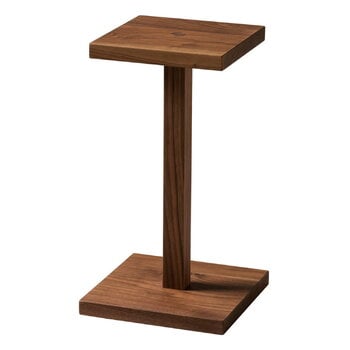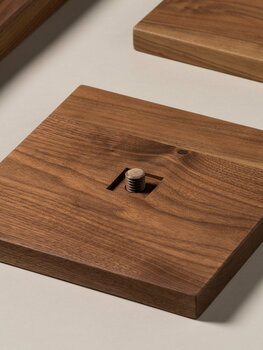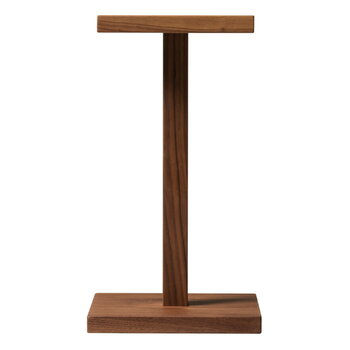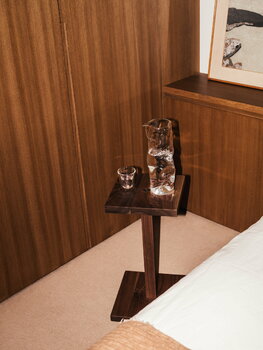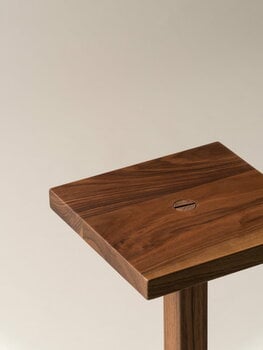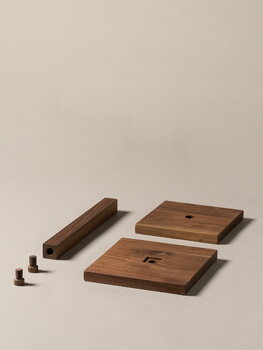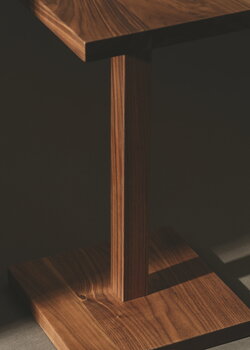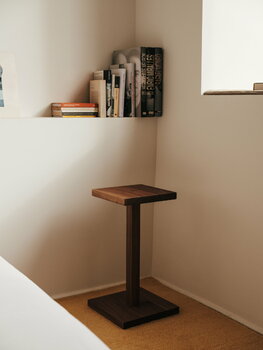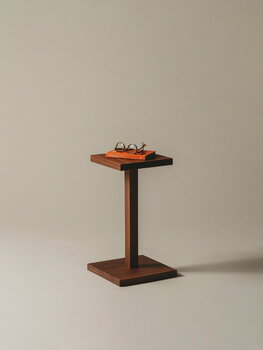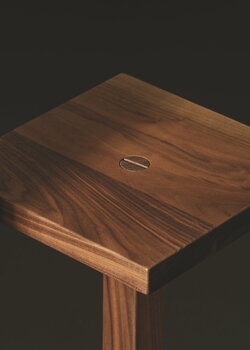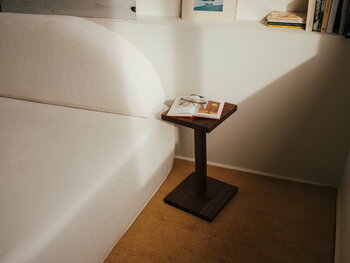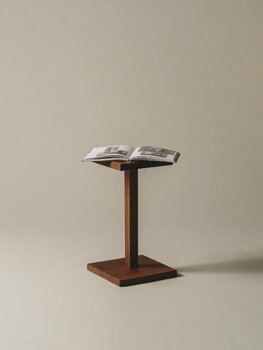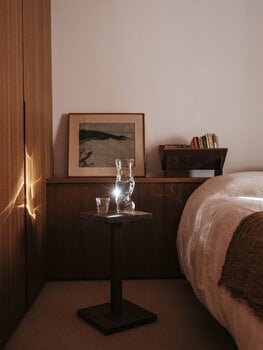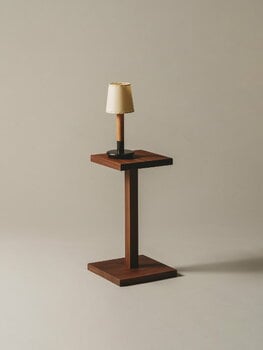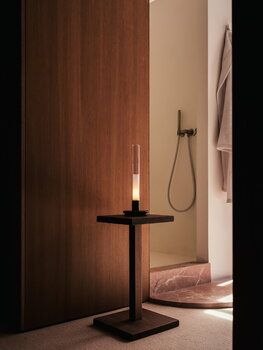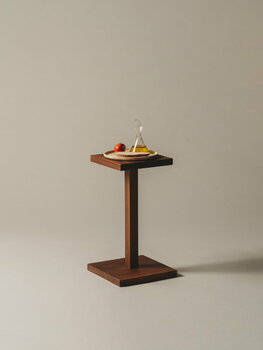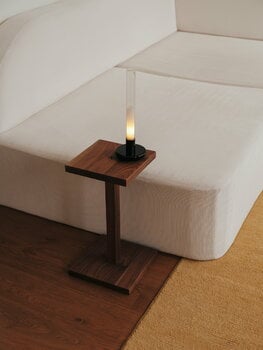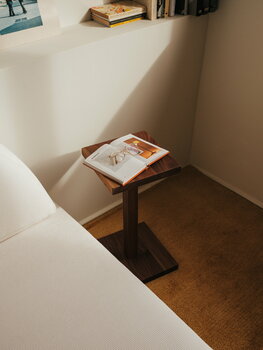Santa & Cole's Peana Molina is a simple solid wood side table designed by Jaume Sans in 1973. Made from warm-toned walnut, Peana Molina consists of a square-shaped tabletop and pedestal with an angular leg placed between them. The sculptural, geometric side table is perfect as a nightstand, plant stand, or perhaps as a small coffee table next to your favourite lounge chair.
Peana Molina side table, walnut
Santa & Cole
Description
Santa & Cole's Peana Molina is a simple solid wood side table designed by Jaume Sans in 1973. Made from warm-toned walnut, Peana Molina consists of a square-shaped tabletop and pedestal with an angular leg placed between them. The sculptural, geometric side table is perfect as a nightstand, plant stand, or perhaps as a small coffee table next to your favourite lounge chair.
Product details (8)
- Colour
- Walnut
- Width
- 27 cm
- Depth
- 27 cm
- Height
- 54 cm
- Measurement details
- Base width 30 cm
- Material
- Walnut
- Weight
- 4 kg
- Notes
- Requires assembly.
- Product ID
Designer
Jaume Sans (1914–1987) was a key figure in Catalan surrealism and early industrial design. Sans was born in Barcelona and spent his childhood in Cuba – after returning to Spain, he was introduced to the magazine L Amic de les Arts, which helped revolutionize the artistic panorama of the 1920s. He attended the School of Arts and Crafts in 1932 and became a member of Amics de l Art Nou (ADLAN), a group of artists that promoted the dissemination of new arts and organised exhibitions.
Read moreReviews (0)
Sustainability
The Product Sustainability Framework, our criteria of sustainable design, helps you find the most sustainable products in our selection. Read below which sustainability criteria this product has met.
Working conditions & labour 9/9
-
Equal opportunities for all employees
-
Commitment to UN Global Compact, fair compensation for all employees
-
Corporate responsibility requirements defined and communicated for suppliers
-
Systematic work for improved inclusion and well-being in the workplace
-
Transparent supply chain
-
Suppliers' compliance to a code of conduct ensured
-
Direct suppliers audited and certified
-
Compliance to the UN Guiding Principles on Business and Human Rights ensured in the supply chain
-
Support for community involvement in the supply chain
Eco-friendly production 9/9
-
Fair and resource-wise water-use in production
-
No incineration or landfilling of returned items
-
No use of endangered species as materials
-
No direct environmental emissions or waste (excl. GHGs) from production
-
The sustainability of direct suppliers' production is addressed and monitored
-
Production and material sourcing that respect biodiversity, animal rights, and natural ecosystems
-
Material-efficient and ecological packaging
-
Positive impact on nature’s well-being through operations that regenerate natural ecosystems
-
No potentially harmful chemicals used in own production
Climate impact 7/8
-
Company's direct greenhouse gas emissions identified and commitment to reduction
-
Product's carbon impact identified and commitment to reduction
-
Guidance on energy- and eco-efficient use of the product
-
Contribution to climate initiatives beyond the brand’s direct operations
-
Low-carbon or compensated transportation
-
Carbon footprint of the product calculated and goals set to reduce it
-
Carbon neutral or carbon negative product
Sustainable materials 6/6
-
Sustainable and long-lasting material choices
-
No harmful or hazardous substances
-
Responsible raw material sourcing and production
-
Materials suited for circularity: monomaterials, recyclable finishings, renewable or recycled contents etc.
-
Ecological materials: natural, biodegradable, recyclable or recycled contents
-
Outstanding materials in terms of innovativeness, responsibility, sustainability and circularity: local production or sourcing, 100 % recycled content, C2C-certification etc.
Circular design 5/5
-
High aesthetic quality promoting long-term use of the product
-
Technically durable product design and material choices
-
Design for enduring life-long quality
-
Design and support for product maintenance, repair and upgradability
-
Innovative circular design solutions: circular service system, resale platform, remanufacturing, collection of used products, etc.

